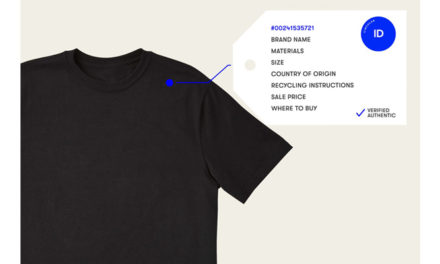 The Global Organic Textile Standard has launched a Due Diligence Handbook for Certified Entities, which, in cooperation with the Hague-based UpRights Foundation, offers a roadmap to help companies reduce their social and environmental impacts. The publication of the handbook is described as “a crucial step forward in the promotion of sustainability, human rights and ethical business conduct in the textile sector”, while also underscoring GOTS’s commitment to social justice and environmental integrity.
The Global Organic Textile Standard has launched a Due Diligence Handbook for Certified Entities, which, in cooperation with the Hague-based UpRights Foundation, offers a roadmap to help companies reduce their social and environmental impacts. The publication of the handbook is described as “a crucial step forward in the promotion of sustainability, human rights and ethical business conduct in the textile sector”, while also underscoring GOTS’s commitment to social justice and environmental integrity.
Ruslan Alyamkin, responsible, standard development and implementation (social responsibility) at GOTS, explained: “The GOTS Due Diligence Handbook marks a significant progression following the incorporation of due diligence criteria in the latest GOTS 7.0 version. It is a testament to GOTS’s commitment to supporting certified entities in their journey towards required responsible business practices.”
The handbook is based on recognised international frameworks, including the OECD Due Diligence Guidance for Responsible Supply Chains in the Garment and Footwear Sector (2018) and the UN Guiding Principles on Business and Human Rights (UNGPs).
It offers GOTS certified companies’ clear guidance on integrating due diligence processes into their operations, thereby helping them to comply with domestic due diligence laws such as the German Supply Chain Law, French Vigilance Law, and upcoming EU legislation.
According to GOTS, the handbook offers a holistic due diligence approach, ensuring that certified companies not only identify but also proactively prevent and effectively mitigate potential adverse impacts on human rights and the environment.
It also bolsters the recently developed GOTS 7.0 criteria and ensures that companies are equipped with the knowledge and tools to respond to potential challenges.
GOTS is currently undergoing the OECD Alignment Assessment, a three-stage process that will result in a reputable, independent evaluation of the GOTS Criteria’s alignment with the OECD’s due diligence guidance documents.
The process, supported by the German Federal Ministry for Economic Cooperation and Development, began in July 2023 and is expected to be completed in January 2024.
 The Global Organic Textile Standard has launched a Due Diligence Handbook for Certified Entities, which, in cooperation with the Hague-based UpRights Foundation, offers a roadmap to help companies reduce their social and environmental impacts. The publication of the handbook is described as “a crucial step forward in the promotion of sustainability, human rights and ethical business conduct in the textile sector”, while also underscoring GOTS’s commitment to social justice and environmental integrity.
The Global Organic Textile Standard has launched a Due Diligence Handbook for Certified Entities, which, in cooperation with the Hague-based UpRights Foundation, offers a roadmap to help companies reduce their social and environmental impacts. The publication of the handbook is described as “a crucial step forward in the promotion of sustainability, human rights and ethical business conduct in the textile sector”, while also underscoring GOTS’s commitment to social justice and environmental integrity.

















